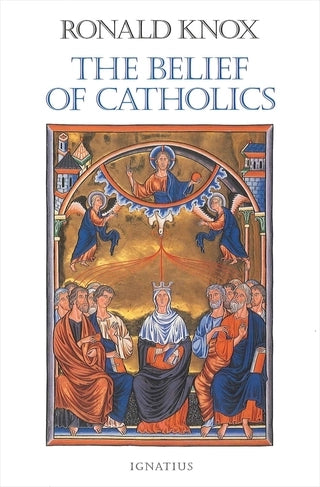Ignatius Press
The Belief of Catholics
The Belief of Catholics
Couldn't load pickup availability
Ronald Knox was one of the most influential British convert-writers of the 20th century. Of his many works, The Belief of Catholics is his best-known book and his premiere piece of apologetics. While it deals extensively with Protestantism, its target is more the unchurched or lightly-church modern who, if he gives any thought at all to Catholicism, thinks it mildly foreign.
As Knox knew, it is not the most difficult part of modern apologetics to convince the devoted Protestant that he has much of Christian truth but now needs to move on to the rest, which is found only in the Catholic Church. The most difficult part is convincing the nominal Protestant (or nominal Catholic), the vaguely religious person, or the person without any religious inclinations that God really does exist, that His existence matters, and that only knowledge of Him and obedience to Him can lead to answers to the questions that haunt everyone.
Knox discusses "the truths Catholics hold", "the rules Catholics acknowledge", "the strength Catholics receive", and "the ambitions Catholics honour". These truths, rules, strengths, and ambitions were attractive to the book's first readers. They were answers to the ever-present "Why?". These answers will prove equally attractive to today's readers who, after so many decades of failed isms, yearn for understanding and commitment even more than did their grandparents' generation.
Share


